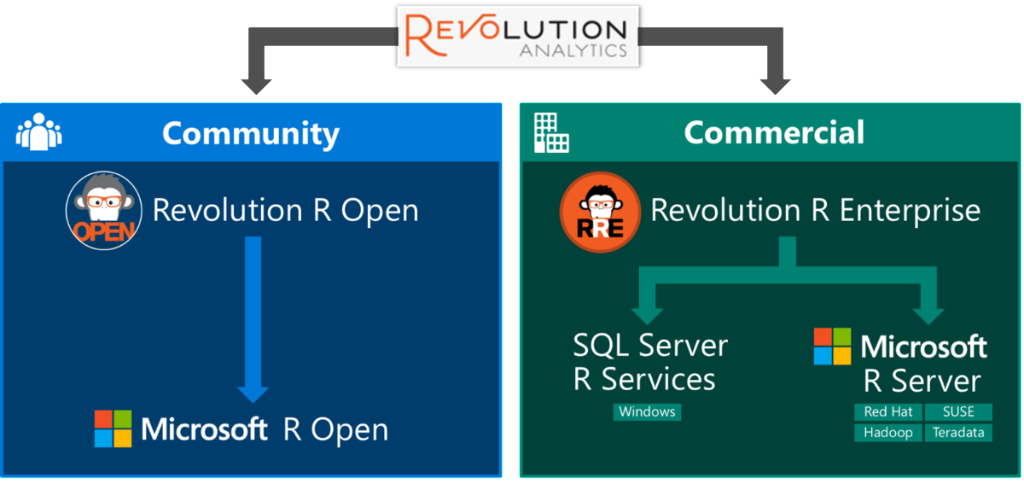
Microsoft wants to make R the enterprise standard for cross-platform analytics. The company has unveiled its plan to deliver R-based analytics to new platforms, developers and the R community.
When the company acquired Revolution Analytics (a provider of software and services for R) less than a year ago, it obtained Revolution R Open and Revolution R Enterprise technologies. Revolution R Open will now be known as Microsoft R Open, and Revolution R Enterprise will be known as Microsoft R Server.
The company has announced that Microsoft R Open will be available as a free download, and Microsoft R Server will be available for free to all students through the Microsoft DreamSpark program.
Other announcements included a new Microsoft R Server Developer Edition, as well as plans to integrate Revolution’s scalable R distribution into Azure HDInsight and Machine Learning, and to deliver Microsoft R server as an Azure Marketplace Virtual Machine.
More information is available here.
Microsoft updates Windows security
Microsoft has updated security features in Windows to resolve some vulnerabilities. The most severe vulnerability could allow remote code execution if an attacker is able to log on to a target system and run a specially crafted application.
The security update was rated “Important” for all supported releases of Microsoft Windows. The update addressed the following vulnerabilities:
• Correcting how Windows validates input before loading DLL files
• Correcting how Microsoft DirectShow validates user input
• Enforcing the default setting of not allowing remote logon for accounts without passwords
More details about the update are available in a Microsoft security bulletin.
Google turns focus to VR
Google will be giving Facebook and Microsoft some virtual reality competition this year. Re/code has reported the company is shuffling around some of its leadership in order to focus more on its virtual reality efforts.
According to Re/code, Clay Bavor, vice president for product management, will be abandoning his current app responsibilities to solely oversee the company’s virtual reality projects. His previous responsibilities will go to Diane Greene, senior vice president of Google’s cloud business. According to Bavor’s Twitter profile, he even has a new title: vice president of virtual reality at Google.
The full story is available here.





